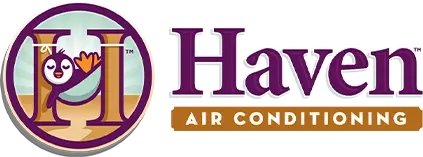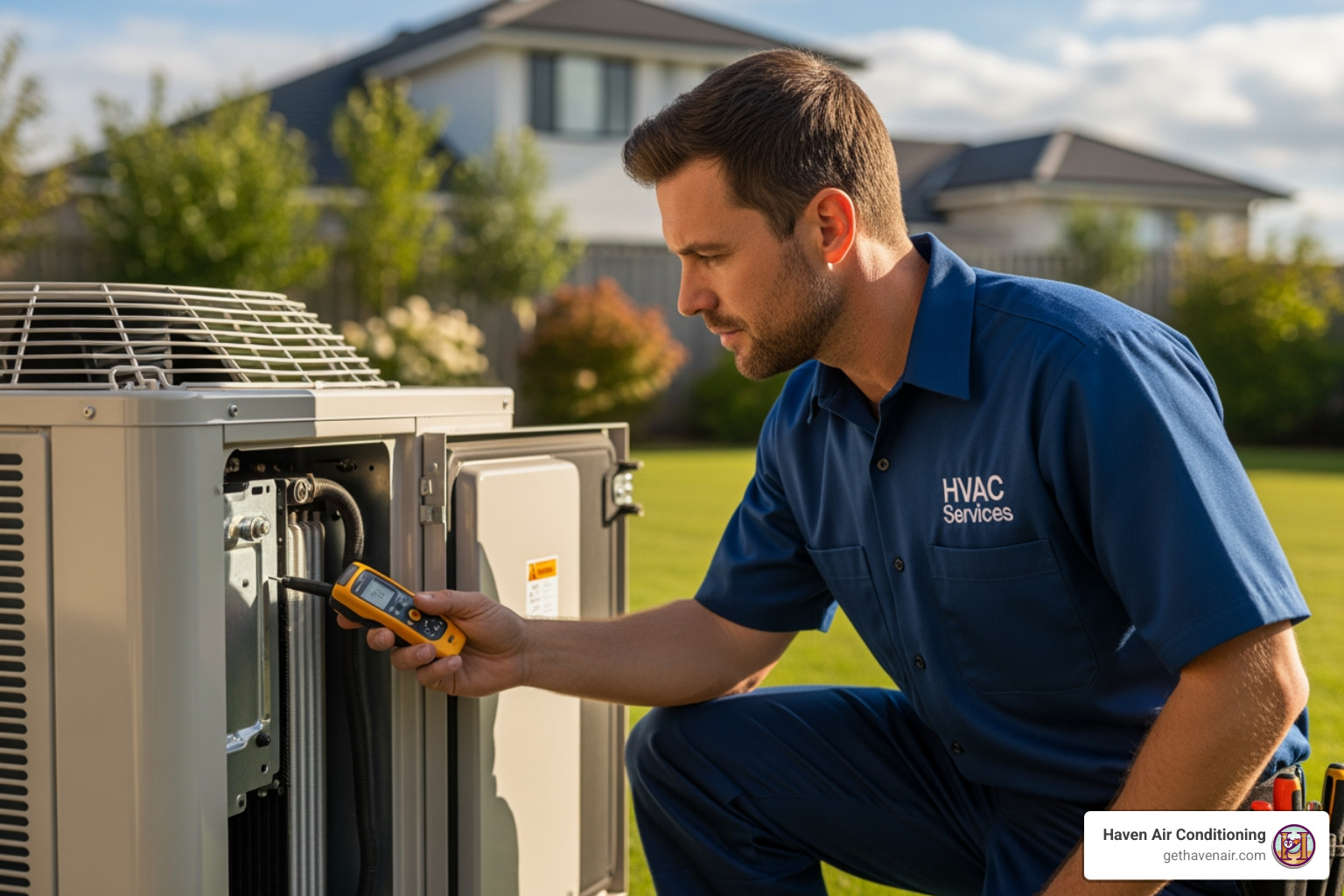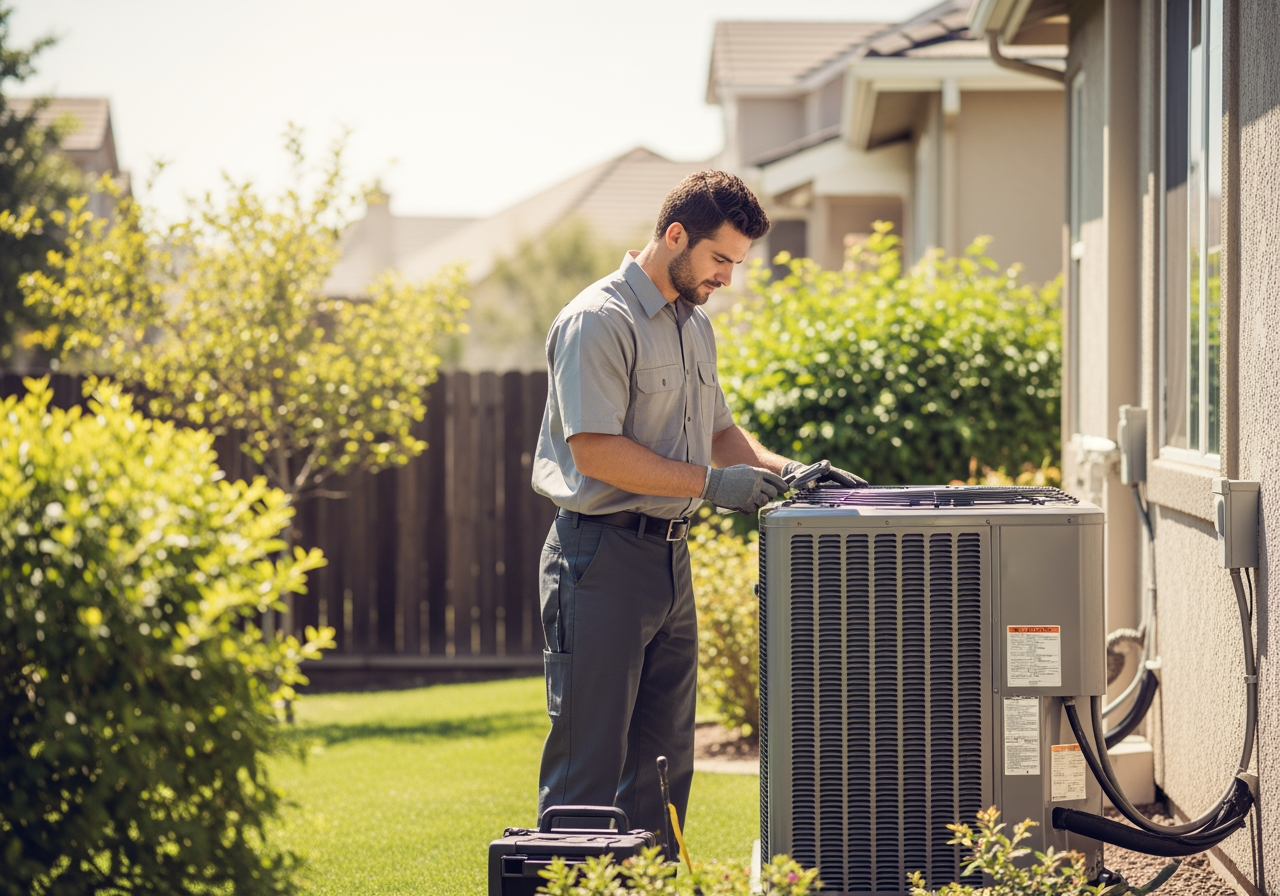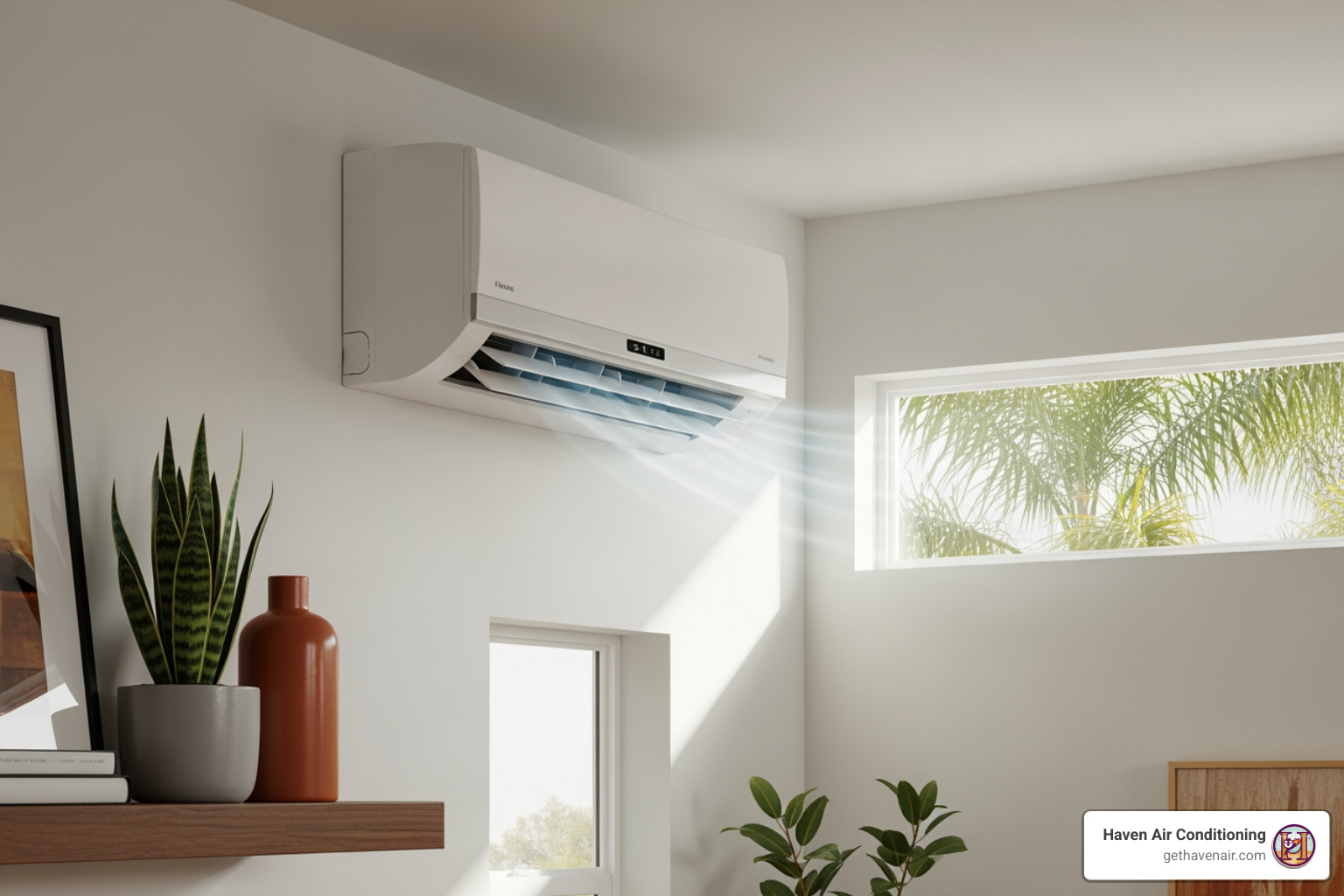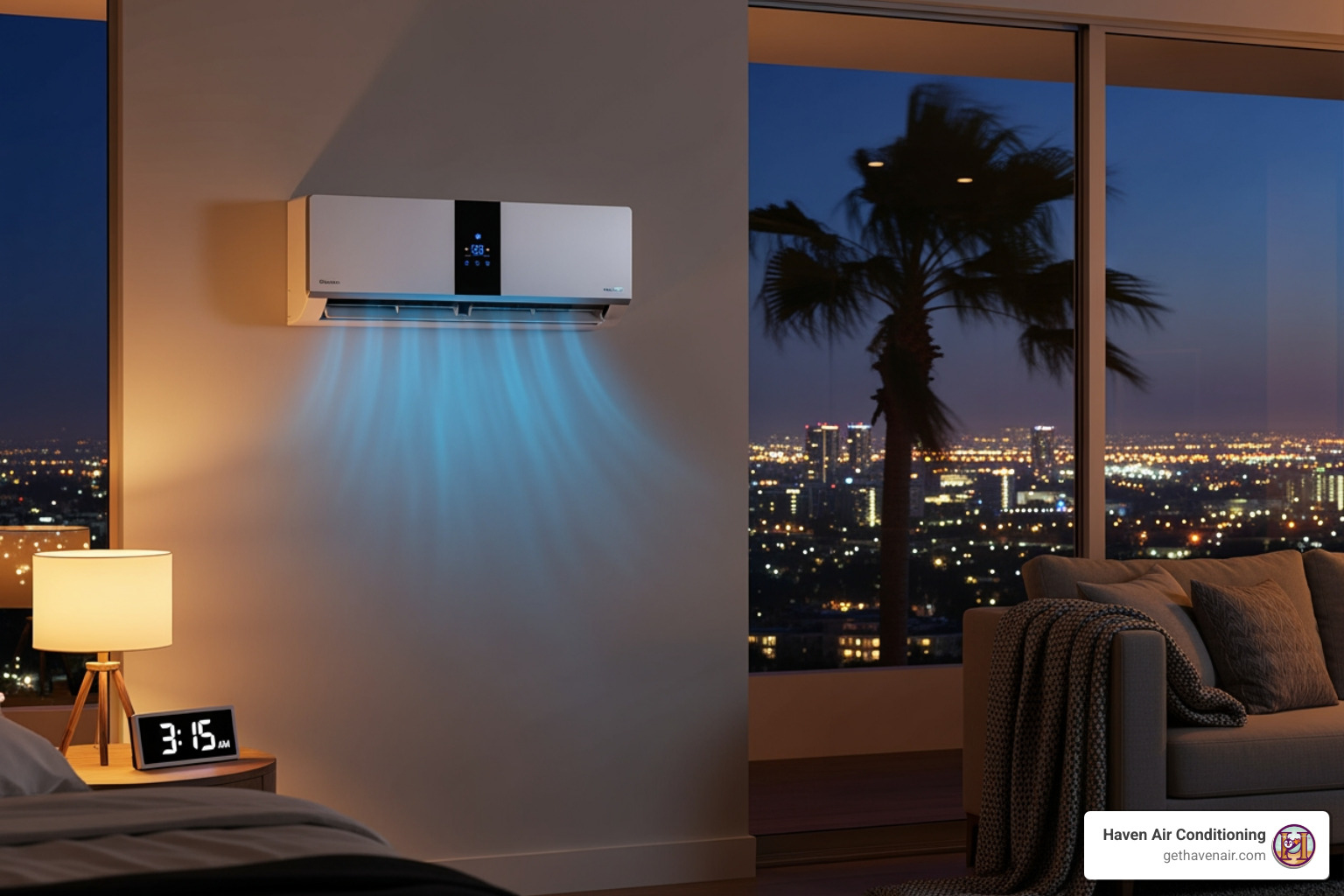Heat pumps and air conditioning systems are two popular solutions – both offering excellent cooling capacity to combat extreme weather conditions. Let’s explore the differences between a heat pump and an air conditioner, so you can decide which system best suits your space, budget, and climate control requirements.
A Brief History Of Heat Pumps And Air Conditioners
Heat pumps have been in use for many years, with early versions dating back to the late 19th century. Originally designed for industrial purposes, they were later adapted for residential use. Technological advancements over the years have made heat pumps more efficient and affordable.
Air conditioners gained popularity in the early 20th century as a solution for hot weather relief. The invention of refrigeration systems paved the way for modern air conditioning units that we see today.
Key Differences Between Heat Pumps & Air Conditioners
When comparing heat pumps and air conditioners, it’s important to understand their key differences. Here are the main factors to consider:
- Heat pumps offer both heating and cooling capabilities, while air conditioners focus solely on cooling indoor spaces.
- Heat pumps are more energy-efficient than air conditioners, resulting in lower electricity consumption and cost savings over time.
- Heat pumps are more versatile, providing heating and cooling capabilities throughout the year, while air conditioners are primarily used for cooling during hot weather.
- Heat pumps can extract warmth from outside even in colder temperatures, making them suitable for moderate climates. Air conditioners excel in hot climates with mild winters.
What Is A Heat Pump?
A heat pump is a type of HVAC (Heating, Ventilation, and Air Conditioning) system that pumps hot air from inside your home to the exterior to cool down your house. This process reverses the flow because it takes cold air outside and pumps warm air indoors. It’s an electrically powered unit that uses principles from thermodynamics to cool or heat a living space while requiring minimal energy usage. So what is a heat pump in short? It’s an efficient way to save energy while providing comfortable cooling and heating for your home.
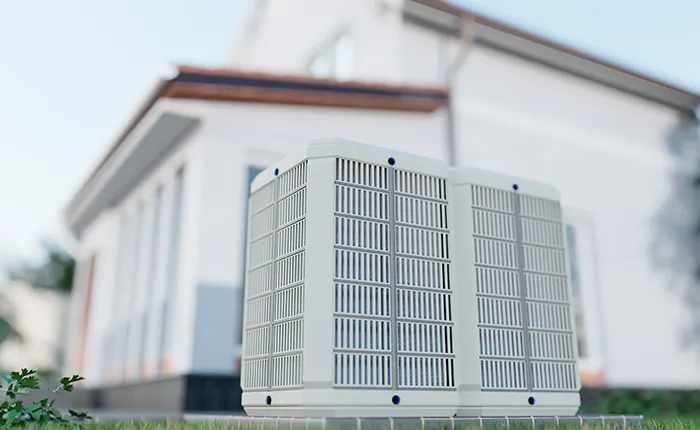
How Does A Heat Pump Heats?
“Is a heat pump an air conditioner?” you may wonder. When it comes to how a heat pump heats, there is quite a simple process involved. During cooler months, the heat pump utilizes a reversing valve that switches the system from cooling to heating. This reversing valve then pulls usable heat energy from the outside air and sends it inside your home up to temperatures of around 70 degrees Fahrenheit (21 degrees Celsius).
On days when the temperature drops below 30 degrees Fahrenheit (-1 degree Celsius), however, there may not be enough usable heat energy in the outside air for this method to work efficiently. This is where supplemental or auxiliary sources come into play. The auxiliary source kicks in on colder days when necessary; its purpose is twofold:
- Firstly, providing faster heating times during those frigid moments;
- Secondly, saving energy by only using supplementary sources when required rather than having them run continuously throughout all types of weather day-in-day-out, as many older systems used to do before improvements were made.
Pros & Cons Of Heat Pumps
Heat pumps have become popular for many homeowners, as they provide a way to heat and cool your home with minimal energy usage. However, like all systems, there are benefits and drawbacks to consider before investing in a heat pump. Let’s take a closer look at some of the advantages and disadvantages associated with heat pumps:
- Pros
- Heat pumps use electricity to heat your home instead of gas or propane.
- With a heat pump, you can evenly disperse the warmth throughout your home effortlessly, thanks to its connection with your home’s existing ductwork.
- Heat pumps offer greater energy efficiency since they produce more cool and warm air with the power it consumes.
- Heat pumps require minimal effort to upkeep, needing only two yearly maintenance checks.
- Cons
- If you live in a colder climate where temperatures fluctuate below freezing, there are better options than heat pumps for efficiency.
- Heat pumps are reliant on electricity to operate.
- A heat pump costs more to buy and install than a furnace, making it an investment that needs careful consideration.
- Compared to furnaces used primarily during the cooler months of the year, heat pumps operate relentlessly throughout all seasons and therefore have a shorter lifespan.
What Is An AC?
An air conditioner (A/C) is an appliance that cools a home’s or a building’s interior. It achieves this by circulating cooling refrigerant through a network of coils that can absorb heat from the air and transfer it outside. The cooled air is then circulated back into space, resulting in a lower temperature than outside. The most common type of A/C system consists of four essential components: the compressor, condenser coil, expansion valve, and evaporator coil.
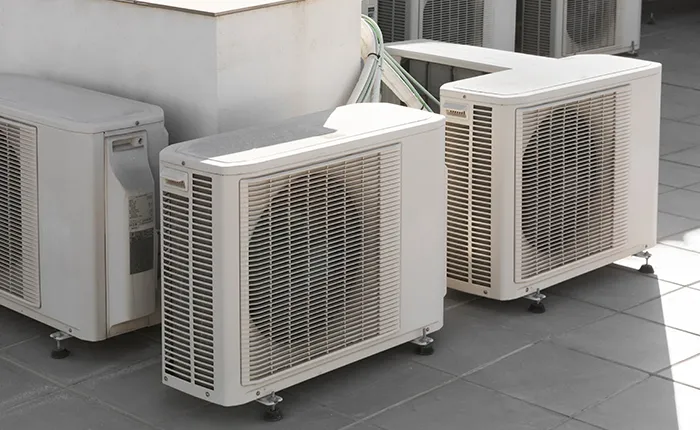
How Does AC Cool?
Have you ever wondered how your air conditioner manages to keep the room cool despite the sweltering heat outside? Believe it or not, an AC doesn’t blow cool air inside — it just takes the warm air away. This happens due to the compression and expansion of a refrigerant that flows through coils in an air handler unit.
The refrigerant is compressed by a compressor, which increases its temperature and pressure. The high-pressure gas then passes through the indoor coil’s fins, where it releases heat energy that is absorbed by the indoor space. This lowers both the temperature and pressure of the gas.
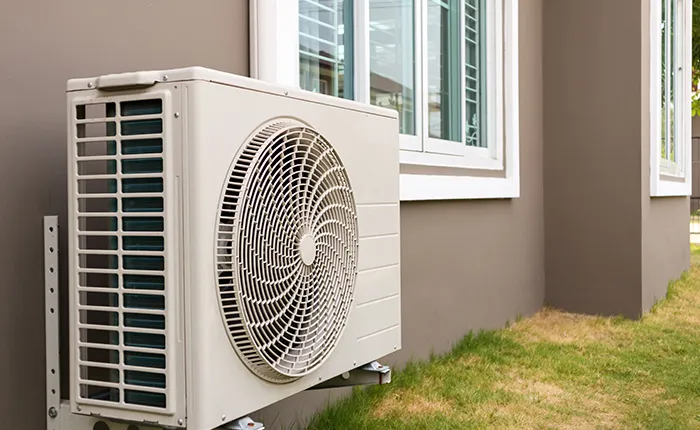
Through expansion valves, this now-cooled low-pressure gas enters into another set of coils located outside your house and is called an evaporator. Here it absorbs more heat energy as it evaporates back into a gaseous state, thus cooling down any remaining hot spots in your home before being sent back to be recondensed, completing one cycle in total.
Pros & Cons Of AC
Air conditioners can provide an excellent solution for keeping your home or office cool and comfortable during the hot summer. However, it is essential to weigh the pros and cons of using an AC before deciding to purchase a unit. Let’s take a look at some of the advantages and disadvantages that come with installing an AC:
- Pros
- Air conditioners are the perfect solution for quickly and effectively cooling an expansive space, such as a large home or office.
- Air conditioners adeptly disperse chilled air throughout any room with the assistance of ductwork.
- Air conditioners significantly enhance indoor air quality and reduce allergens by filtering air, providing a more comfortable living environment.
- Cons
- Air conditioners can help you feel comfortably cool, but they use a lot of energy.
- An air conditioner must be combined with a furnace for a complete heating and cooling system.
- Operating an air conditioner can be costly.
How Heat Pumps Compare To Air Conditions?
Heat pumps and air conditioners (AC) are today’s most popular HVAC systems. With both units providing effective cooling, there can be some confusion when determining the right choice for your home. To help you decide, let’s go over the difference between a heat pump and AC.
- Maintenance: Keeping your heat pump running safely and optimally demands having it inspected by an AC professional at least once or twice a year if you use it all four seasons.
Similarly, inspecting your air conditioner in both the spring and fall for potential repairs or replacements is highly advised if you want a good working device. - Cost: The cost of a heat pump vs air conditioner system is a significant determining factor for individuals considering such investments. Depending on your region, prices may range drastically. For instance, an air conditioning system in the Southwest could cost anywhere from $10,000 to $20,000, whereas a heat pump can cost between $12,000 to $25,000.
Furthermore, if ductwork repairs are necessary before installation, those costs could run between $1,500 and $10,000. - Efficiency: Generally speaking, heat pump systems require less energy compared to standard furnaces when temperatures remain moderate. From an economic standpoint, opting for a heat pump rather than an air conditioner and furnace could help homeowners lower their utility bills significantly in the long run.
However, those savings may diminish when outside temperatures drop too far below a certain point, as the supplemental heating system of the pump will then need additional resources to maintain the desired level of warmth inside. - Climate In Your Area : Heat pumps and air conditioners do an excellent job of cooling your home, but depending on the climate in your area, one may be a better fit than the other. Air conditioners are more appropriate for areas that experience hot temperatures throughout the summer months. At the same time, heat pumps work best when there is not too much variation between winter and summer temperatures.
If you live in an area that experiences hot summers and cold winters, a heat pump is the better choice due to its dual functionality. - Size Of The Unit In Regard to Your Home : When deciding between an AC and a heat pump, it’s important to consider the size of the unit, the size of your living space as well as the heat load on the home. Generally, heat pumps and AC units occupy about the same footprint outdoors, but the indoor component (fan coil) can be larger than a typical furnace.
- Noise Levels: Heat pumps are a great option if you’re looking to maintain comfortable indoor temperatures. Even better, by choosing inverter technology, you can keep noise levels to a minimum, making them an ideal heating and cooling option for light sleepers and those living close to areas with much noise, such as nurseries or home offices.
Furthermore, it is important to opt for a unit tested and certified by the Air Conditioning, Heating, & Refrigeration Institute (AHRI) to produce lower decibel levels. Heat pump vs HVAC systems is an important comparison if noise is a major consideration.
Heat Pumps Vs AC: Which System Is The Right For You?
Deciding between an air conditioner vs heat pump can be complicated, depending on your specific climate. Heat pumps use much less energy than air conditioners, making them a more energy-efficient choice in most cases. However, if your environment is particularly chilly, it will take more electricity for a heat pump to heat up outside air.
If your area experiences seasonal shifts in temperature, but they’re not extreme enough to require a lengthy usage of your HVAC system, then an air conditioner may be the right option for you. Understanding the differences between the two options will help you make the right decision for your individual needs.
Get Expert Advice from Haven Air Conditioning
If you are still trying to decide which system suits you and your unique needs or need guidance on selecting the right option, our experienced technicians at Haven Air Conditioning in Orange County can help. We will assess your home and outside climate to determine the best system for your space and offer expert installation services so that you can get the most out of your HVAC system. Contact us today to learn more about heat pump installations and AC installations.
Do you want to learn more about heat pumps? Read our article about the differences between heat pumps and furnaces.
